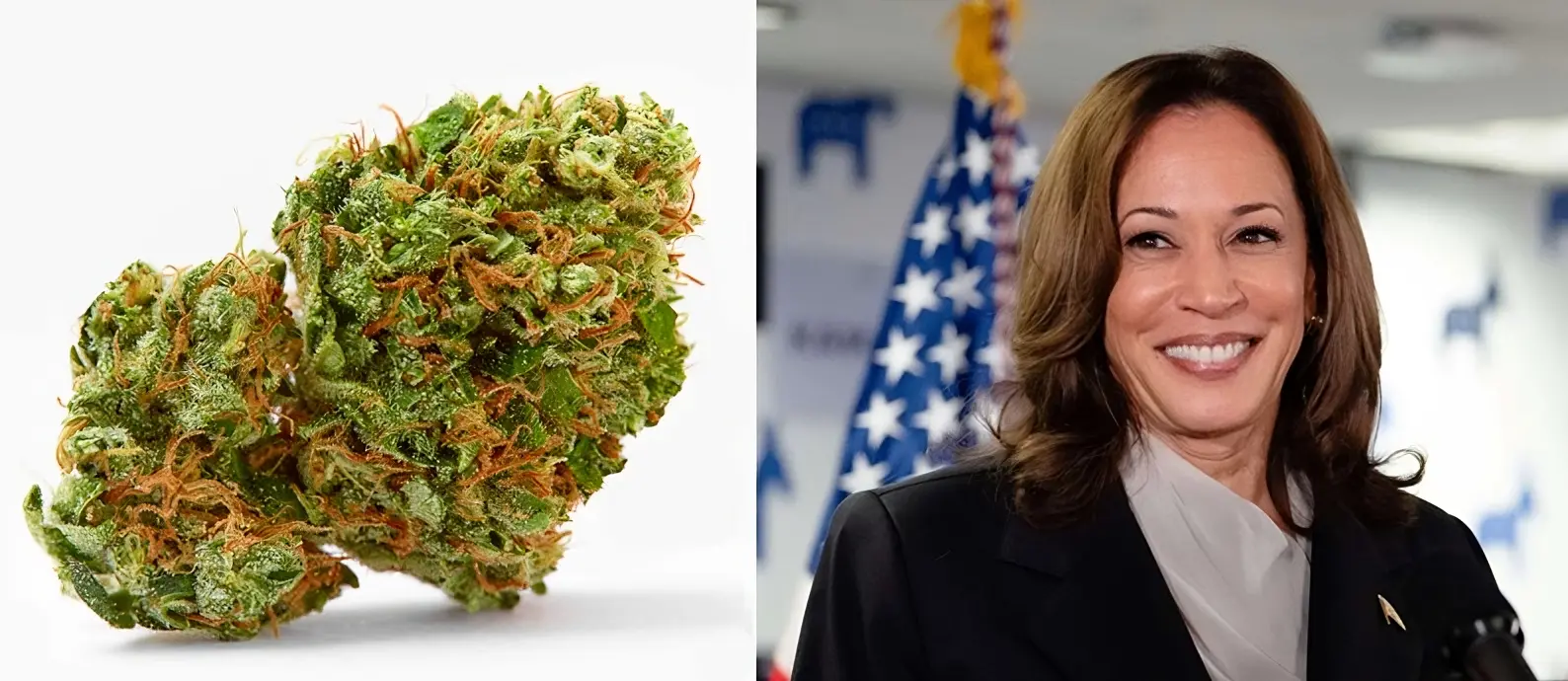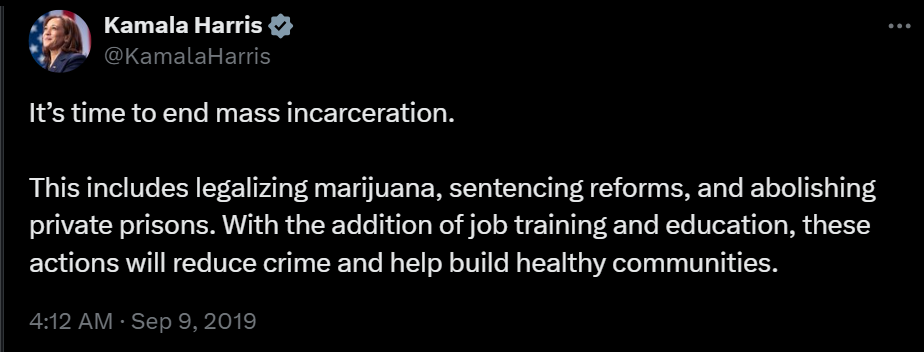Vice President Kamala Harris hasn’t made marijuana an issue since becoming the Democratic nominee for president. However, there’s no doubt she would be the most pro-marijuana president in history, including being completely in support of descheduling marijuana, the key priority of many activists.

While serving as San Francisco’s DA and then California’s Attorney general, Harris opposed California’s 2014 marijuana legalization initiative, infamously laughing at a reporter who asked her opinion on the issue. She’s also faced criticism from progressives for prosecuting marijuana-related offenses, although marijuana charges did go down significantly following her tenure.
Despite this, Harris’ opinion on the matter advanced through the years. In September 2019, Harris announced her support for legalizing marijuana, marking a significant shift in her political platform.
“It’s time to end mass incarceration,” Harris tweeted. “This includes legalizing marijuana, sentencing reforms, and abolishing private prisons.”

That same year, as a U.S. Senator, Harris co-sponsored the Marijuana Opportunity Reinvestment and Expungement (MORE) Act, which would federally deschedule marijuana, expunge certain cannabis offenses, and establish a federal excise tax for marijuana sales. This would effectively end the nation’s decades long prohibition on marijuana.
The following here, the MORE Act was approved by the U.S. House of Representatives, but failed to receive consideration in the then-evenly split Senate.
Currently the newest iteration of the MORE Act has 95 sponsors in the House, more than any other marijuana-related measure in U.S. Congress other than the SAFE Banking Act. A Senate bill to deschedule marijuana, the Cannabis Administration and Opportunity Act (CAOA), has 18 sponsors, including Senate Majority Leader Chuck Schumer. This legislation instructs the U.S. Attorney General to establish regulations to deschedule marijuana within 180 days of the bill’s passage. It also proposes a federal excise tax beginning at 5% on marijuana producers, rising to 12.5% by the fifth year, and calls for the creation of the Center for Cannabis Products within the FDA to oversee the industry’s production, labeling, distribution, and sales.
While running for president in 2020, Harris included legalizing marijuana as part of her party platform, showing her continued support for the issue.
As Vice President, Harris has been a strong supported of the Biden Administration’s efforts to reschedule marijuana to Schedule III. Following the DEA’s announcement, she said, “Currently, marijuana is classified on the same level as heroin and more dangerous than fentanyl. We are finally changing that. I want to thank all of the advocates for making this possible.”
However, Harris has also indicated that rescheduling isn’t enough. Earlier this year, she expressed her support for marijuana legalization, making her the first vice president in U.S. history to do so. After promoting the Biden Administration’s marijuana pardons, she said, “We need to legalize marijuana.” This stance aligns with her 2020 presidential campaign platform.
Her opponent, former President Donald Trump, opposed legalizing or decriminalizing marijuana during his presidency, including his first attorney general rescinding the Cole Memo. However, he did take a hands off approach in regards to state-level marijuana legalization laws, and he recently indicated he will vote in favor of Florida’s Amendment 3 to legalize marijuana for everyone 21 and older. A few days later, Trump in an interview said medical marijuana is “absolutely amazing” and said Amendment 3 will be “very good” for Florida.







